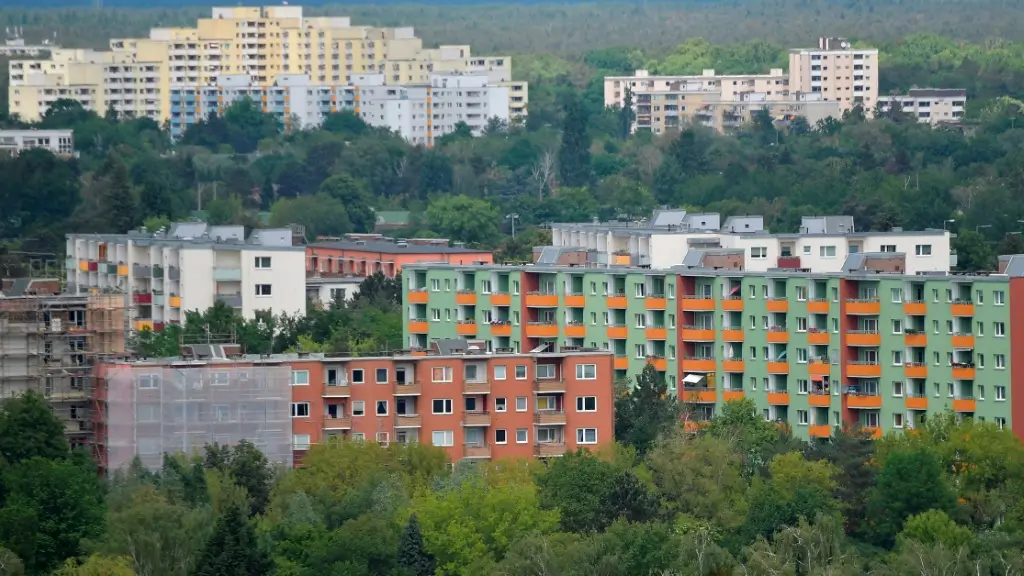
Germany’s rental market is showing signs of easing, but for expats and locals alike, finding a suitable apartment in major cities remains a steep challenge. According to the latest data from the Kiel Institute for the World Economy (IfW), asking rents in German cities increased by 0.7% in the second quarter of 2025 compared to the previous quarter. While this represents a slower pace than earlier spikes, the intense demand for housing continues to put pressure on tenants across the country.
The IfW report highlights that, after adjusting for inflation, quoted rents actually fell slightly by 0.2% in Q2. Year-on-year, rents are up 3.4% nominally, but when adjusted for inflation, the rise moderates to 1.3%. This marks a shift from the sharp rent increases seen throughout 2024 and early 2025, suggesting that the market may be stabilizing, at least on the surface.
However, for those seeking homes in Germany’s largest cities, this slowdown offers little relief. The demand for apartments remains fierce, and competition is particularly intense in urban centers.
A closer look at the eight largest German cities shows striking disparities in rental prices:
Quarter-on-quarter, Düsseldorf saw the sharpest rent increase (+1.5%), followed by Hamburg (+1.3%) and Berlin (+0.7%). In contrast, Frankfurt’s rents dipped slightly (-0.2%), and increases in Stuttgart and Cologne were minimal.
Outside of the big cities, rental prices also grew, sometimes at an even faster pace. Münster experienced the strongest jump with a 3.5% rise, pushing average rents to €13.87/m². East German cities such as Erfurt, Dresden, and Chemnitz saw smaller increases, but they remain more affordable overall. The only city in the survey to buck the trend was Karlsruhe, where rents dropped slightly by 0.6% (€13.35/m²).
Perhaps the most telling sign of Germany’s housing crunch is how quickly apartments disappear from the market. In 2025, rental listings remain online for an average of just 23 days, down from 34 days a decade ago. In Berlin, the competition is even fiercer: one in four apartments is rented within two days.
IfW researcher Jonas Zdrzalek notes, “This shows that the demand for housing is very high. Especially in major cities, securing a suitable apartment can be extremely difficult.”
Despite government efforts like the housing construction turbo (Wohnungsbau-Turbo) program, program, which aims to accelerate the building of new homes across Germany, experts remain cautious about its immediate impact. The housing market is currently under tremendous pressure due to persistently high demand and limited supply, especially in major cities.
These conditions mean that even well-intentioned policies will take time, often several years, to meaningfully reduce rental prices or ease competition. Additionally, construction delays, regulatory hurdles, and rising building costs pose further challenges to quickly expanding housing stock. According to IfW researcher Jonas Zdrzalek, the “high demand in the housing market limits the immediate price-reducing effects of these measures,” emphasizing that renters should not expect instant relief.
For anyone looking for a place to rent in Germany, these market realities underscore the importance of being both proactive and adaptable. Whether you’re moving within Germany or coming from abroad for work, study, or family reasons, navigating the rental market requires patience and strategic planning.
Understanding the wide variation in rents between cities, knowing how quickly apartments get snapped up, and being prepared to act fast can make all the difference in securing a suitable home. Staying informed about regional differences, pricing trends, and upcoming housing policies will help renters better position themselves in this highly competitive environment. Ultimately, flexibility, whether in location, budget, or timing, will be key for those seeking housing in today’s challenging German rental market.